Category: Back to the People
Project title: Transforming the Cashew Industry through Sustainability, Traceability, and Market Innovation
Project type: Business Implementation or Operational Initiative
Relevant SDG(s):
- Goal 12: Responsible Consumption and Production
Primary topic(s):
- Community Development and Engagement
- Sustainable Sourcing and Procurement
Relevant product(s): cashews
Project start date: 2023. End date: 2025, still running. Duration: 3 years
Location: Ivory Coast, Benin, and Mozambique
Is this a multi-collaborative project? This project was led by Export Trading Group (ETG) in collaboration with the Rainforest Alliance, leveraging their expertise in sustainability. Additionally, the initiative was supported by USAID, AATIF, and GIZ, ensuring a broader impact on the ground and enhancing its reach and effectiveness.
ABSTRACT:
Transforming the Cashew Industry through Sustainability, Traceability, and Market Innovation: Whereas cash crops like cocoa, coffee, and cotton benefit from robust global sustainability initiatives, the cashew industry lacks a structured, scalable approach to sustainability. Less than 10% of cashew producers receive industry or public support for adopting more sustainable production practices. This gap is especially significant given that cashews are predominantly grown in dry, often impoverished savannah regions of sub-Saharan Africa, where it plays a vital role in combating desertification and providing income opportunities with minimal agricultural inputs. With climate change and increasing drought conditions, studies (CIGAR, 2011) predict that cashew may even replace cocoa in some areas due to its high climate resilience. However, without proper sustainability frameworks, risks such as deforestation and monoculture expansion, and social risks, could undermine the long-term viability of cashew production.
Recognizing this need, ETG has introduced an innovative solution to the international cashew market: certified sustainable cashew nuts, focusing on production in Benin, Côte d’Ivoire, and Mozambique. This initiative is built upon the first-ever Rainforest Alliance certification for cashew, establishing an industry-wide sustainability standard that not only enhances the sector’s credibility but also expands market access for certified cashews in Europe. The project seeks to improve market linkages for 10,000 farmers in its first three years, targeting the sustainable production of around 20,000 MT of raw cashew nuts.
Innovation and Industry Impact: This initiative stands apart through its innovative, data-driven approach to sustainability, addressing critical supply chain transparency and traceability challenges. The cashew supply chain is highly fragmented—grown primarily in West Africa, processed in Vietnam, and consumed in Europe and the U.S.—which has historically obscured sustainability risks. This project introduces digital farmer data collection to systematically map and assess risks at the farm level, including potential deforestation encroachment and risks of child labor.
By implementing a new traceability system, the project provides visibility into the cashew supply chain, allowing for a more responsible and transparent sourcing model. This is particularly crucial as new regulations, such as the Corporate Sustainability Due Diligence Directive (CSDDD) and the EU Deforestation Regulation (EUDR), will soon require European companies to demonstrate sustainable and responsible supply chain practices. Given that cashew is likely to be included under these regulations, this project proactively ensures that stakeholders are prepared for compliance.
Furthermore, retail market commitments are driving the demand for sustainable cashews. Dutch supermarkets, under the Centraal Bureau Levensmiddelenhandel (CBL), have committed to making all private-label cashew snack nuts sustainably certified by 2030. This initiative directly supports these goals, ensuring that certified cashews are available at scale, thus meeting rising consumer expectations and regulatory requirements while creating economic benefits for farmers.
Scalability and Long-term Vision: A key aspect of this project’s innovation and leadership is its scalability. While certification programs often remain limited in scope, this initiative has demonstrated a proven business case for large-scale adoption, enabling certification to become cost-efficient at scale. By aligning sustainability efforts with market demand and regulatory requirements, this model creates a blueprint for industry-wide transformation.
By 2027, all large companies in Europe must comply with the CSDDD, requiring them to identify and mitigate risks in their supply chains. Through traceability, certification, and supply chain risk assessments, this project serves as a strategic enabler for the cashew sector’s compliance with evolving sustainability policies.
At the core of this project lies a holistic vision for the future of cashew farming—one that empowers farmers, protects natural ecosystems, and secures long-term industry resilience. By setting a new industry benchmark for responsible sourcing, this initiative is paving the way for a more sustainable and transparent global food system.
Through this forward-thinking and scalable approach, ETG’s certified cashew project is creating a transformational impact on the industry. It directly contributes to environmental preservation, economic empowerment, and market-driven sustainability, positioning cashews as a model crop for sustainable production. By addressing structural challenges in the supply chain and aligning with global sustainability trends, this initiative sets an inspiring example for the nut and dried fruit sector and beyond.
OBJECTIVES:
The project aims to transform cashew sustainability by addressing the sector’s lack of traceability and transparency. By creating a scalable, cost-efficient model, it connects farmers to premium markets while ensuring consumer recognition. The initiative also focuses on digitizing farmer data to assess supply chain risks, including deforestation and social vulnerabilities. With growing regulatory and market demands—such as CSDDD, EUDR, and retailer commitments—this project provides a structured pathway for sustainable cashew production, offering a blueprint for industry-wide adoption across key producing regions.
IMPACT AND OUTCOMES:
Project Results, Achievements, and Impact: The sustainability initiative has successfully transformed cashew production in Ivory Coast, Benin, and Mozambique by introducing the first-ever Rainforest Alliance certification for cashew. By establishing a structured approach to traceability and transparency, the project has addressed a critical gap in the sector, resulting in measurable improvements in farmer incomes, productivity, and market access.
Scaling Farmer Certification and Expanding Market Access: The project launched with an initial pilot group of 2,000 farmers and has now scaled to 10,000 certified farmers across the three countries. The success of this project’s intervention has been recognized by European retailers which have committed to purchasing Rainforest Alliance Certified cashew. In Ivory Coast, certification efforts expanded from working with one cooperative in year one to five cooperatives in year two, reaching 10 cooperatives by year three. This growth has resulted in the certification of 5,190 farmers and a certification potential of 12,000 MT of cashew nuts. The percentage increase in certified farmers in Ivory Coast alone stands at 160% from year one to year three, demonstrating the initiative’s scalability and industry impact.
Beyond Ivory Coast, the project has secured around 20,000 MT of certified cashew across the three countries, creating a sustainable supply chain that is now recognized by global buyers. Through certification, participating companies now pay premiums directly to farmers, facilitating reinvestment in farm sustainability and improving livelihoods. Additionally, ETG has secured long-term market linkages by setting up contracts between supplier groups and off-take buyers, ensuring farmers have reliable sales channels.
Increasing Yields and Farm Productivity through GAP Training: A key component of the initiative is the introduction of Good Agricultural Practices (GAP) training, which has been shown to increase cashew yields by 20-25%. Improved practices, such as better pruning, pest management, and soil health monitoring, have resulted in higher productivity per hectare. By digitizing farmer data, the project has also begun assessing environmental risks, such as ensuring cashew farming remains sustainable and does not encroach on protected forest areas.
Strengthening Local Capacities and Direct Farmer Engagement: To implement the project effectively, 24 field agents were employed across all three countries, providing on-the-ground support for farmers and cooperatives. This has allowed for a shift away from working through traders and toward direct engagement with farmers and cooperatives. Additionally, lead farmers were empowered to support aggregation, facilitate training, and negotiate better prices, ensuring a fairer and more transparent supply chain.
Industry Recognition and Policy Influence: Beyond direct farm-level impact, the project has helped push the cashew industry toward sustainability. As a result of the initiative’s success, ETG was invited to present its results at industry events and became a board member of the Sustainable Nut Initiative. Furthermore, ETG was asked to share key learnings on traceability at FRUCOM’s sustainability working group, showcasing the project’s role in setting best practices for sustainability in the cashew sector.
The initiative is also well-aligned with upcoming European regulations such as the Corporate Sustainability Due Diligence Directive (CSDDD) and the potential inclusion of cashew in the EU Deforestation Regulation (EUDR). With Dutch supermarkets committing to making all private label cashew sustainably certified by 2030, this project provides a scalable model for industry-wide adoption.
Long-term Impact and Industry Transformation: By securing market commitments, empowering cooperatives, and improving traceability, the project has set a new standard for sustainability in the cashew sector. Its achievements demonstrate that certification can be scalable, cost-efficient, and beneficial for farmers and buyers alike. This initiative is not just about certification—it is about fundamentally reshaping the cashew industry to be more equitable, transparent, and sustainable.
In what ways is the project innovative?
This project is pioneering a scalable, cost-efficient sustainability model for cashew, a sector lacking structured traceability and transparency. Unlike traditional certification, it integrates digital farmer data collection to monitor environmental risks and connects fragmented supply chains. By leveraging a digital platform by Farmerline for real-time insights, it provides companies with a solution for compliance with upcoming regulations like CSDDD and EUDR. The initiative also shifts from trader-based sourcing to direct farmer engagement, ensuring fair pricing and long-term sustainability. Recognized by industry leaders, it sets a new benchmark for responsible sourcing, proving sustainability can be both affordable and impactful at scale.
More information:
- A World First – Beyond Beans Foundation
- Pioneering the Rainforest Alliance certification of cashew in Mozambique | Common Fund for Commodities
https://common-fund.org/pioneering-rainforest-alliance-certification-cashew-mozambique




